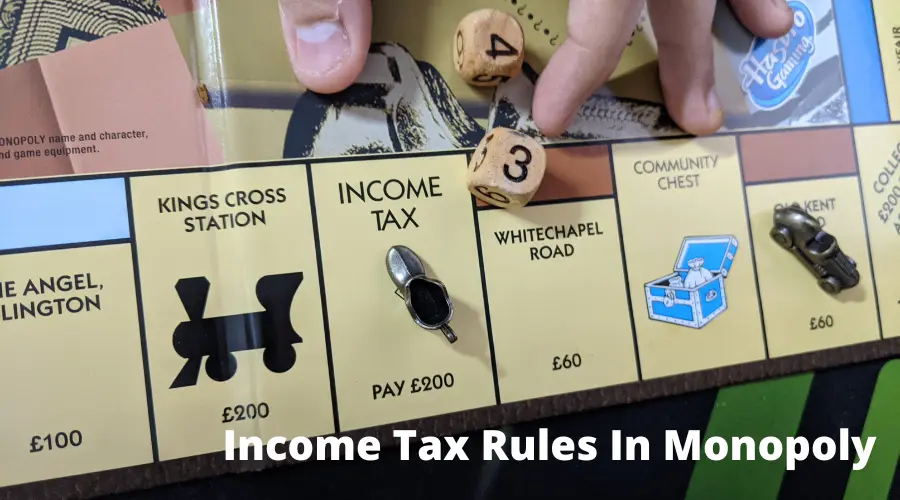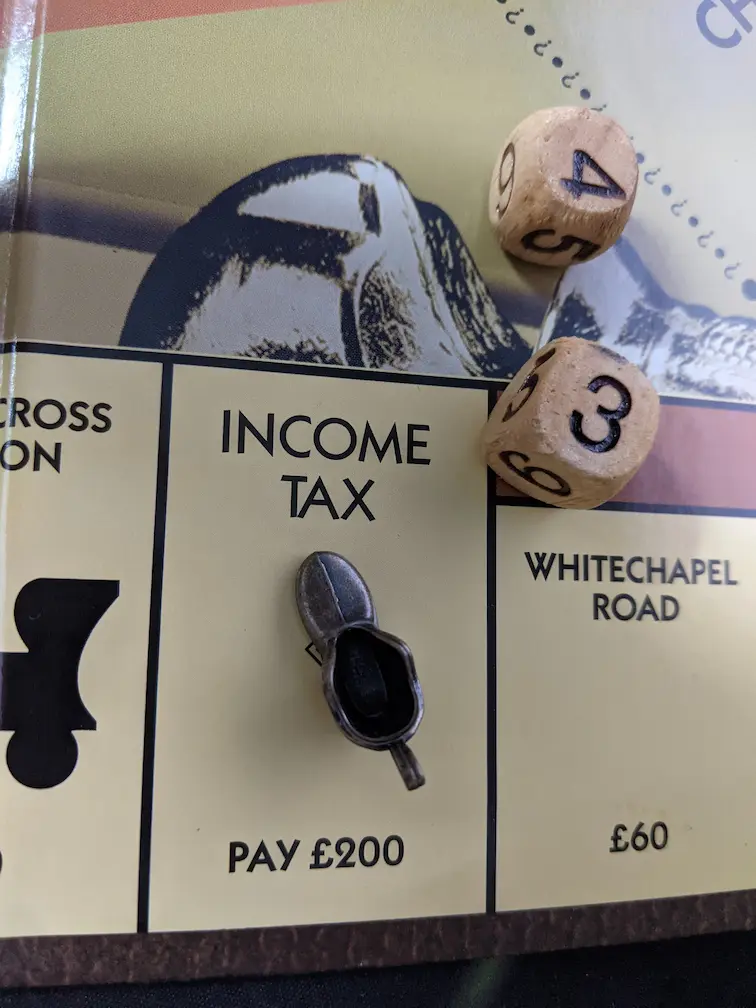The Monopoly Game also has Income Tax which you have to pay during the game and the amount goes to the Monopoly Bank.
However, you may have doubts regarding the rules.
This rule is not applicable to all but the one who lands on Income Tax Space on the board.
In this post, I will discuss the Monopoly Income Tax Rules that you need to know while playing the game.

Let’s get started!
About Monopoly Game
Monopoly is one of the most popular board games ever created.
The game is simple: players move around the board, buying and selling property, and trying to make the most money.
In Monopoly, players are able to accumulate wealth and become powerful by owning property.
It is a simple, yet challenging game that can be enjoyed by people of all skill levels.
The game is also a great way to spend time with family and friends.
The game can be won in a variety of ways, but the most common is for one player to become the “monopolist” by owning all of the properties in a color group and having the most money.
What is Income Tax in Monopoly?
Income tax in Monopoly works if you land on a space that has “Income Tax” on it.
When you land on a space you must pay 200$ for an income tax. Interestingly enough, in earlier versions of the game that were made before 2008, you had to pay 10% of your total net worth in the game.
This includes money, property owned, houses, and hotels.
But this was later changed to 200$ in 2008 because it was deemed very complicated for a board game, interestingly though, in the first edition of the game you had to pay 300$ in income tax whenever you landed on the square for income tax.
Though it is up to you on how you want to play, you can either choose the 200$ income tax or make it more fun by doing the 10%
How does Income Tax Works In Monopoly Game?
Income tax works by making the player pay 200$ whenever they land on the “Income Tax” square.
But there also is another type of tax seen in the game and that is the luxury tax, which means if you land on this square, you must pay 100$.
Though, when you land on either square you must pay the money to the bank.
How Do I Calculate Income Tax in Monopoly?
You can either pay the 10% or pay the 200$, and either way might be viable because depending on which one you choose, it could end up paying less than the other option.
If you’re playing on the 10% tax rules, then you have to calculate how much you’re going to pay based on your net worth.
You’ll have to pay 10% of your total net worth.
This means you have to calculate how much money you have as cash in hand.
Then you have to add property value together by seeing the printed price of all properties that could be mortgaged or unmortgaged.
Then you have to calculate how many hotels and houses you have and go by the printed price of those too. You add those all up and then you calculate 10% of that.
Do you Pay Income Tax on the First Round of Monopoly?
Yes, you have to pay income tax even if it is the first round. But you are still allowed to announce whether or not your paying 10% of your total assets, or the flat 200$
What Happens When You Can’t Pay Income Tax?
The player must declare bankruptcy if they can’t pay the income tax, and this includes not being able to sell off properties to pay the income tax.
When a player declares bankruptcy, everything they own is sold to auction and they must quit the game and declare that they lost.
Conclusion
Let’s conclude the post on Income Tax Rules in Monopoly Game!
I hope the tax calculation became clear in Monopoly here.
What’s Next?
You can check the different Official Monopoly Rules Here in this guide.
Here are Unofficial and Fan Made Monopoly House Rules too to spice up your game.

